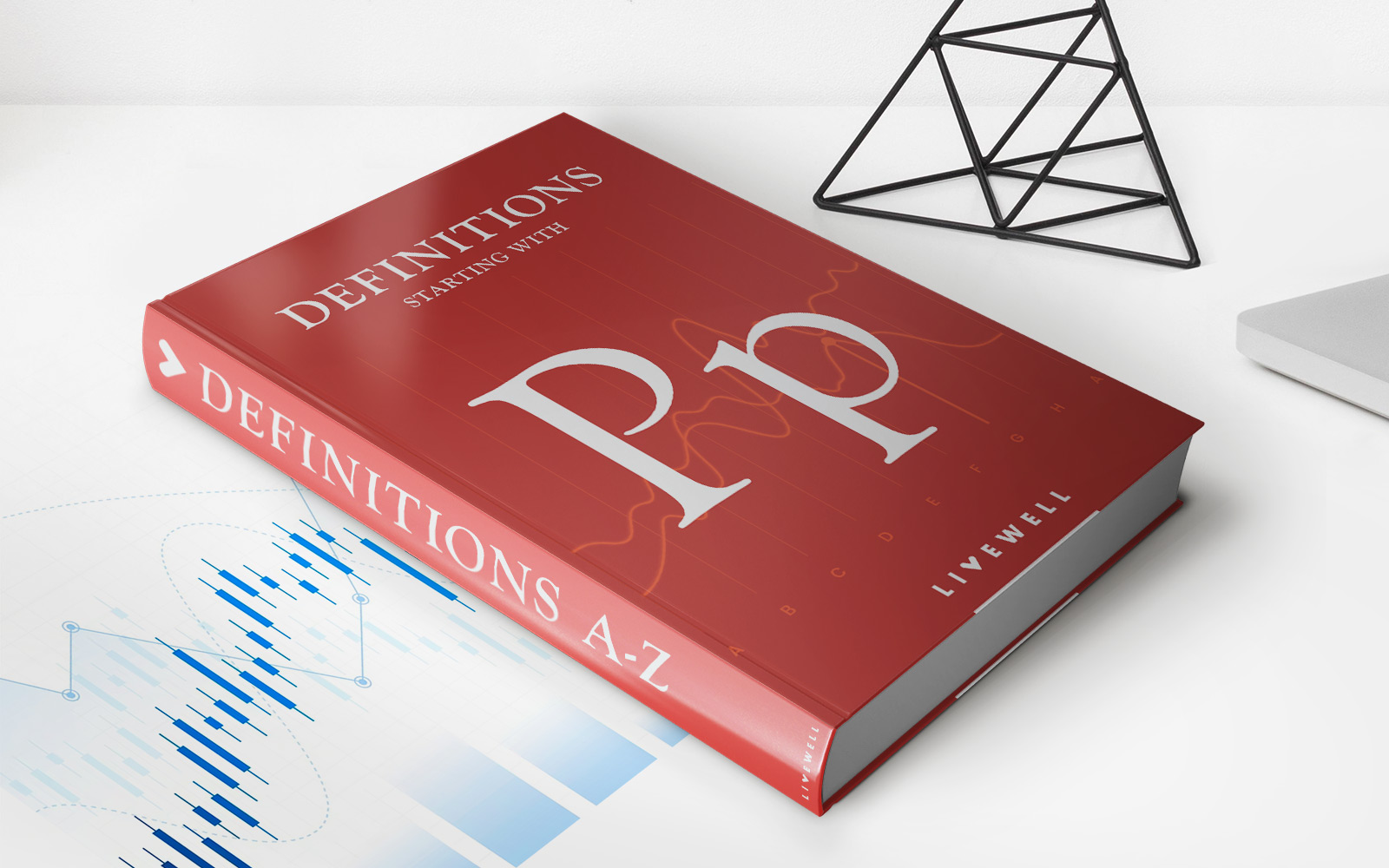

Finance
What Is An Insurance Producer?
Modified: December 30, 2023
Learn what it takes to become an insurance producer and explore the role they play in the world of finance. Gain insights into the responsibilities and qualifications needed for this career path.
(Many of the links in this article redirect to a specific reviewed product. Your purchase of these products through affiliate links helps to generate commission for LiveWell, at no extra cost. Learn more)
Table of Contents
- Introduction
- Definition of an Insurance Producer
- Roles and Responsibilities of an Insurance Producer
- Licensing and Education Requirements
- Skills and Qualifications
- Types of Insurance Products and Policies
- Sales and Marketing Techniques
- Building and Maintaining Client Relationships
- Compliance with Insurance Regulations
- Compensation and Commission Structure
- Career Paths and Advancement Opportunities
- Conclusion
Introduction
Welcome to the world of insurance! In today’s unpredictable world, insurance has become an essential aspect of our lives. From protecting our homes and automobiles to ensuring our health and financial well-being, insurance plays a vital role in safeguarding our future. But have you ever wondered who connects us to the right insurance policies and helps navigate the complex world of insurance? That role is performed by an insurance producer.
An insurance producer, also known as an insurance agent or broker, is a trained professional who specializes in helping individuals and businesses find the right insurance coverage for their specific needs. They act as a liaison between the insurance company and the client, ensuring that the client is well-informed about their options and guiding them through the process of purchasing and managing insurance policies.
Insurance producers play a crucial role in the insurance industry, as they are responsible for providing personalized advice, assessing risks, and securing suitable insurance coverage for their clients. They often work in collaboration with insurance underwriters and other industry professionals to ensure that clients receive the best possible insurance solutions.
In this article, we will explore the world of insurance producers, their roles and responsibilities, the necessary qualifications and skills required to excel in this field, and the various career opportunities available. Whether you are considering a career as an insurance producer or simply looking to gain a better understanding of their importance, this article will serve as a comprehensive guide.
Definition of an Insurance Producer
An insurance producer, also referred to as an insurance agent or broker, is an individual or entity licensed to sell insurance policies on behalf of one or multiple insurance companies. They act as intermediaries between insurance companies and clients, assisting them in identifying the right insurance coverage and facilitating the purchase process.
Insurance producers play a crucial role in the insurance industry by helping individuals and businesses assess their insurance needs, providing expert advice, and offering suitable insurance products tailored to their specific requirements. They serve as trusted advisors, leveraging their in-depth knowledge of insurance policies and regulations to guide clients in making informed decisions regarding their insurance coverage.
Insurance producers can specialize in various types of insurance, including but not limited to property and casualty insurance, life insurance, health insurance, and commercial insurance. They work closely with clients to understand their needs, analyze potential risks, and recommend policies that provide adequate protection.
As licensed professionals, insurance producers have a fiduciary duty to act in the best interests of their clients. This means that they must prioritize the needs and requirements of clients over their own financial interests. They are responsible for providing accurate information, transparently disclosing any commissions or fees involved, and diligently assisting clients throughout the insurance process.
It is essential to note that the specific title and licensing requirements for insurance producers may vary by jurisdiction. In some regions, the terms “agent” and “broker” may be used interchangeably, while in others, they may denote different levels of authority or responsibilities. However, regardless of the title, all insurance producers are licensed professionals authorized to sell insurance policies to clients.
Now that we have a better understanding of what an insurance producer is, let’s delve deeper into their roles and responsibilities in the insurance industry.
Roles and Responsibilities of an Insurance Producer
An insurance producer is responsible for a wide range of tasks that revolve around assisting clients with their insurance needs. Let’s explore some of the key roles and responsibilities of an insurance producer:
- Evaluating Client Needs: Insurance producers begin by assessing their clients’ insurance needs. They gather information about clients’ assets, liabilities, and potential risks to determine the appropriate insurance coverage.
- Providing Expert Advice: Based on their evaluation, insurance producers provide expert advice on the types and levels of insurance coverage that would best protect their clients. They explain policy terms and conditions, helping clients make informed decisions that align with their budget and risk tolerance.
- Researching Insurance Products: Insurance producers research various insurance products offered by different insurance companies to identify the most suitable options for their clients. They compare coverage benefits, policy terms, and pricing to recommend the best choices.
- Quoting and Negotiating Policies: Once clients have decided on the desired insurance coverage, insurance producers obtain quotes from insurance companies. They negotiate with insurers to secure competitive rates and favorable terms for their clients.
- Facilitating Policy Applications: Insurance producers guide clients through the application process, assisting with the completion of required forms and documentation. They ensure all necessary information is accurately provided to the insurance company.
- Managing Policy Endorsements and Renewals: Insurance producers help clients manage policy changes, such as adding or removing coverage, adjusting coverage limits, or updating personal information. They also facilitate policy renewals, proactively reviewing coverage to ensure it remains appropriate for clients’ evolving needs.
- Assisting with Claims: In the event of a claim, insurance producers support their clients by providing guidance on the claims process, initiating claims on their behalf, and liaising with insurance companies to achieve fair and timely claim settlements.
- Staying Informed: Insurance producers stay up-to-date with industry trends, changing regulations, and emerging insurance products. They continuously enhance their knowledge to provide clients with the most relevant and innovative insurance solutions.
These are just some of the primary responsibilities of an insurance producer. Depending on the specific client base and insurance specialization, additional roles and duties may come into play. The core focus, however, remains on helping clients secure appropriate insurance coverage and delivering exceptional customer service throughout the insurance process.
Licensing and Education Requirements
Licensing and education requirements for insurance producers vary by jurisdiction and the type of insurance being sold. However, obtaining the necessary licenses and completing relevant education is a fundamental step to becoming an insurance producer. Let’s explore the general requirements:
Licensing: To become an insurance producer, aspiring professionals must obtain a license from the regulatory authority in their jurisdiction. This typically involves passing a licensing examination that assesses the applicant’s knowledge of insurance laws, ethics, and industry practices. The examination may vary based on the type of insurance being sold, such as life and health insurance or property and casualty insurance.
Education: Many jurisdictions require completion of pre-licensing education courses before taking the licensing examination. These courses provide foundational knowledge and prepare individuals for the licensing process. The length and content of these courses can vary depending on local regulations.
Continuing Education: Once licensed, insurance producers are often required to participate in ongoing education to maintain their licenses. Continuing education ensures that producers stay abreast of industry changes, new regulations, and emerging insurance products. The specific requirements for continuing education, such as the number of hours required and the frequency of renewal, also vary by jurisdiction.
It is important for aspiring insurance producers to understand the licensing and education requirements in their specific jurisdiction. They should contact the appropriate regulatory authority or insurance association to obtain accurate and up-to-date information on the necessary steps to become licensed.
Additionally, obtaining professional certifications can enhance an insurance producer’s credibility and marketability. These certifications demonstrate a commitment to ongoing professional development and a higher level of expertise in specific areas of insurance. Examples of notable certifications in the insurance industry include the Chartered Property Casualty Underwriter (CPCU), Certified Insurance Counselor (CIC), and Registered Health Underwriter (RHU).
In summary, licensing and education requirements are essential aspects of becoming an insurance producer. Obtaining the necessary licenses and completing relevant education courses provide individuals with the knowledge and skills required to excel in the insurance industry while ensuring compliance with regulatory standards.
Skills and Qualifications
Being an insurance producer requires a unique set of skills and qualifications to effectively serve clients and succeed in the competitive insurance industry. Let’s explore some of the essential skills and qualifications that insurance producers should possess:
- Excellent Communication: Effective communication skills are crucial for insurance producers to understand clients’ needs, explain complex insurance concepts, and build strong relationships. They should be able to listen attentively, ask probing questions, and convey information clearly and concisely.
- Product Knowledge: Insurance producers must have a deep understanding of various insurance products and their features. This includes knowledge of policy coverage, exclusions, deductibles, and limits. They should stay up-to-date with industry trends and changes to ensure they can provide accurate and relevant information to clients.
- Sales and Marketing: The ability to effectively sell and market insurance products is essential for insurance producers. They should possess strong persuasion skills, be adept at building rapport, and be able to present insurance solutions in a compelling and persuasive manner.
- Analytical Skills: Insurance producers need strong analytical skills to assess clients’ risks, analyze policy terms and conditions, and recommend appropriate coverage options. They should be able to evaluate data, identify potential gaps in coverage, and make informed decisions.
- Customer Service: Providing exceptional customer service is crucial to building long-lasting client relationships. Insurance producers should be responsive, empathetic, and dedicated to addressing clients’ concerns and needs promptly and professionally.
- Ethics and Integrity: Insurance producers handle sensitive client information, and it is essential that they maintain the highest levels of ethics and integrity. They should handle client data confidentially, avoid conflicts of interest, and always prioritize the clients’ best interests above their own.
- Negotiation Skills: Insurance producers often negotiate with insurance companies to secure competitive rates and favorable terms for their clients. Strong negotiation skills can help them ensure clients receive the best possible coverage and value.
- Technology Proficiency: Insurance producers should be comfortable working with various software platforms and electronic systems commonly used in the insurance industry. This includes online quoting tools, customer relationship management (CRM) software, and document management systems.
While these skills are important, it is also crucial for insurance producers to have the necessary qualifications. This typically includes obtaining the appropriate insurance licenses in their jurisdiction, completing required education courses, and meeting any other regulatory requirements.
In addition to the above skills and qualifications, personal traits such as self-motivation, resilience, and a willingness to continuously learn and adapt to industry changes are also valuable in the role of an insurance producer.
By possessing a combination of these skills, qualifications, and personal attributes, insurance producers can effectively serve their clients, build trust, and succeed in the dynamic and challenging field of insurance.
Types of Insurance Products and Policies
The world of insurance offers a vast array of products and policies to meet individuals’ and businesses’ diverse needs. Insurance producers play a crucial role in helping clients navigate through the various options available. Let’s explore some of the common types of insurance products and policies:
- Auto Insurance: Auto insurance policies protect individuals and businesses against financial loss in the event of an accident or theft involving their vehicles. Coverage typically includes liability, collision, comprehensive, and uninsured/underinsured motorist protection.
- Homeowners Insurance: Homeowners insurance provides coverage for individuals’ homes and personal belongings, as well as liability protection. It safeguards against various risks, including fire, theft, natural disasters, and personal liability claims.
- Life Insurance: Life insurance is designed to provide financial security to loved ones in the event of the insured’s death. It may include term life insurance, whole life insurance, universal life insurance, or variable life insurance, each offering different benefits and features.
- Health Insurance: Health insurance ensures individuals and families have access to medical care by providing coverage for medical expenses, including doctor visits, hospital stays, prescription drugs, and preventive care.
- Business Insurance: Business insurance protects companies from financial losses resulting from property damage, liability claims, or interruptions in operations. Common types of business insurance include general liability insurance, property insurance, professional liability insurance, and workers’ compensation insurance.
- Liability Insurance: Liability insurance protects individuals and businesses from legal claims and financial losses arising from third-party injuries or property damage due to their negligence. This includes general liability insurance, professional liability insurance, and product liability insurance.
- Travel Insurance: Travel insurance provides coverage for unexpected events that may occur during a trip, such as trip cancellation or interruption, medical emergencies, lost baggage, and travel accidents.
- Specialty Insurance: There are various specialty insurance products designed to meet unique needs. Examples include pet insurance, cyber liability insurance, event insurance, and collector’s insurance for valuable items like art or jewelry.
These are just a few examples of the many insurance products and policies available. Insurance producers work closely with clients to assess their specific needs and recommend the most suitable coverage options. By understanding the risks clients face and explaining the benefits and limitations of different policies, insurance producers help individuals and businesses make informed decisions while providing peace of mind.
Sales and Marketing Techniques
As insurance producers, selling and marketing insurance products is a critical aspect of their role. To effectively reach and engage potential clients, insurance producers employ various sales and marketing techniques. Let’s explore some of the key strategies used:
- Targeted Marketing: Insurance producers identify their target audience and develop marketing strategies tailored to their specific needs. By understanding their clients’ demographics, preferences, and pain points, producers can create compelling messaging and choose the most appropriate marketing channels.
- Networking and Referrals: Building a strong network is essential for insurance producers. They actively engage in networking events, join industry associations, and establish mutually beneficial relationships with other professionals, such as real estate agents or financial advisors, who can refer potential clients.
- Online Presence: In today’s digital age, having a strong online presence is crucial for insurance producers. They create professional websites, utilize social media platforms, and optimize their online profiles to showcase their expertise and connect with potential clients.
- Content Marketing: Insurance producers create valuable and informative content, such as blog articles, e-books, or videos, that educate and engage their target audience. By sharing insights and addressing common insurance-related concerns, producers position themselves as trusted industry experts.
- Personalized Approach: Insurance producers understand the importance of personalization in sales and marketing. They take the time to understand clients’ individual needs, educate them about relevant insurance solutions, and tailor their recommendations to match their unique circumstances.
- Follow-Up and Relationship Building: Building and maintaining strong relationships is key to long-term success in the insurance industry. Insurance producers consistently follow up with clients, providing ongoing support, answering questions, and addressing any concerns. This fosters trust and positions them as reliable advisors.
- Effective Communication: Clear and effective communication is vital in sales and marketing. Insurance producers not only articulate the features and benefits of insurance products but also actively listen to clients’ needs and concerns. They address client questions and provide transparent information to help clients make informed decisions.
- Continuous Learning: Successful insurance producers understand the importance of industry knowledge and staying updated on the latest trends. They regularly participate in training programs, attend conferences, and seek opportunities to enhance their skills and expand their product knowledge.
By utilizing these sales and marketing techniques, insurance producers can effectively reach their target audience, engage prospects, and build long-term relationships with clients. The ability to effectively market and sell insurance products is vital for insurance producers to thrive and succeed in a competitive industry.
Building and Maintaining Client Relationships
Building and maintaining strong client relationships is a cornerstone of success for insurance producers. By focusing on client satisfaction and long-term partnerships, insurance producers can foster trust, loyalty, and referrals. Let’s explore some key strategies for building and maintaining client relationships:
- Active Listening: Insurance producers must actively listen and understand their clients’ needs, concerns, and goals. By showing genuine interest and empathy, producers can tailor their advice and recommendations to provide the best possible solutions.
- Regular Communication: Regular and proactive communication is vital for staying connected with clients. Insurance producers should reach out regularly to provide updates, answer questions, and address any concerns. This can be done via phone calls, emails, or in-person meetings, depending on the client’s preferences.
- Responsive and Timely Service: Clients appreciate prompt responses and timely service. Insurance producers should strive to provide quick turnaround times for inquiries, policy changes, and claims assistance. By being responsive and efficient, producers demonstrate their commitment to client satisfaction.
- Education and Guidance: Insurance producers should act as educators and guides, providing clients with valuable insights and information about insurance options, policy terms, and industry trends. By offering expertise and guidance, producers empower clients to make informed decisions about their insurance coverage.
- Consistent Value-Adding: Building trust with clients involves consistently adding value beyond the initial sale. Insurance producers can provide ongoing risk assessments, policy reviews, and recommendations for coverage enhancements to ensure clients’ insurance needs are always met.
- Personalized Approach: Each client is unique, and insurance producers should customize their approach accordingly. By understanding clients’ individual preferences, goals, and risk tolerances, producers can deliver personalized insurance solutions that cater specifically to their needs.
- Going the Extra Mile: Exceptional client service often involves going above and beyond expectations. Insurance producers should be proactive in identifying opportunities for additional support, such as providing resources for risk management, offering discounts or loyalty rewards, or assisting with claims advocacy.
- Seeking Client Feedback: Regularly seeking feedback from clients is essential for understanding their satisfaction levels and identifying areas for improvement. Insurance producers can use surveys, feedback forms, or informal conversations to gather client perspectives and adjust their service accordingly.
- Client Appreciation: Showing appreciation to clients goes a long way in strengthening relationships. Insurance producers can express appreciation through personalized thank-you notes, client appreciation events, or small gestures like birthday or holiday reminders.
By implementing these strategies, insurance producers can build enduring relationships with their clients. Strong client relationships result in client loyalty, repeat business, and referrals, ultimately contributing to the long-term success of insurance producers in the industry.
Compliance with Insurance Regulations
Compliance with insurance regulations is of utmost importance for insurance producers as they navigate the complex legal landscape of the insurance industry. Insurance regulations are in place to protect consumers, ensure fair business practices, and maintain the integrity of the insurance market. Let’s explore the key aspects of compliance with insurance regulations:
- Licensing and Registration: Insurance producers must obtain the necessary licenses or registrations required by their jurisdiction’s regulatory authority. This involves meeting specific criteria, such as passing examinations, completing education requirements, and submitting applications, to demonstrate competence and eligibility to sell insurance products.
- Product Compliance: Insurance producers must adhere to regulations regarding the sale and recommendation of insurance products. This includes ensuring that the products they offer are approved and compliant with applicable laws, regulations, and policy provisions. They must also accurately represent the features, benefits, terms, and conditions of the insurance products they sell.
- Transparency and Disclosure: Insurance producers have an ethical obligation to provide clients with clear and transparent information regarding insurance policies, including premiums, coverage limits, deductibles, exclusions, and any potential conflicts of interest. They must fully disclose any compensation or commissions received from insurance companies, ensuring clients are fully informed about the financial arrangements associated with their policies.
- Data Protection and Privacy: Insurance producers handle sensitive personal and financial information of their clients. They must comply with applicable data protection and privacy laws, ensuring that client data is securely stored, handled, and shared only as authorized and necessary for insurance-related purposes. Producers must take appropriate measures to protect client confidentiality and privacy.
- Anti-Fraud Measures: Insurance producers play a critical role in detecting and preventing insurance fraud. They must be vigilant in detecting potential fraudulent activities among clients or policy applicants and promptly report any suspicions or evidence of fraudulent behavior to the appropriate authorities. Producers must also be well-informed about anti-fraud laws and regulations.
- Continuing Education: Many jurisdictions require insurance producers to engage in ongoing professional education to stay updated with changes in insurance laws, regulations, and industry best practices. By participating in continuing education programs, producers ensure they maintain the knowledge and skills necessary to operate within legal and ethical boundaries.
- Complaint Handling: Insurance producers must have procedures in place for promptly and effectively handling client complaints or disputes. They should address client concerns in a fair, transparent, and timely manner, aiming to resolve issues to the client’s satisfaction while adhering to regulatory requirements.
- Record Keeping: Insurance producers are typically required to maintain accurate and organized records of client interactions, policies, and transactions. This includes records of client consent, disclosure documents, policy applications, policy changes, and other relevant documentation. These records may be subject to regulatory audits and serve as evidence of compliance.
Compliance with insurance regulations is essential for insurance producers to operate ethically, protect client interests, and maintain the trust and confidence of both consumers and regulatory authorities. By staying informed about applicable laws and regulations, implementing effective compliance measures, and conducting business in a responsible and ethical manner, insurance producers can navigate the regulatory landscape successfully.
Compensation and Commission Structure
The compensation and commission structure for insurance producers varies depending on factors such as the type of insurance, the insurance company they work with, and their business model. Let’s explore some common approaches to compensation and commission for insurance producers:
- Commission-Based Compensation: The most common compensation model for insurance producers is commission-based. In this structure, producers earn a percentage commission on the premium amount of the insurance policy they sell. The commission percentage may vary depending on the type of insurance and the agreement between the producer and the insurance company.
- Base Salary Plus Commission: Some insurance producers may have a base salary in addition to their commission. The base salary provides a stable income regardless of the sales performance, while the commission component offers additional earnings based on the policies sold.
- Contingent Commissions: In addition to regular commissions, insurance producers may be eligible for contingent commissions based on certain performance metrics, such as sales volume or retention rates. These contingent commissions are typically paid annually or semi-annually and can provide additional incentives to producers reaching predetermined targets.
- Overriding Commissions: Insurance producers who manage a team or act as a supervisor may also earn overriding commissions based on the sales performance of their team members. These commissions serve as additional compensation for their managerial responsibilities.
- Fee-Based Compensation: Some insurance producers, particularly those in specialized areas such as risk management or niche markets, may opt for a fee-based compensation model. In this structure, producers charge clients a service fee for their expertise and advice, rather than earning commissions directly from insurance sales. This model allows for more transparent fee disclosure and may be used alongside or instead of commission-based compensation.
- Profit-Sharing or Bonuses: In certain cases, insurance producers may be eligible for profit-sharing or performance-based bonuses. These additional compensation components are often tied to the overall profitability or growth of the insurance agency or company. Producers may receive a share of the profits or a bonus based on their individual or team performance.
- Renewal Commissions: In the case of policies with renewal premiums, insurance producers may earn renewal commissions for policies they have sold when the policyholders renew their coverage. Renewal commissions provide ongoing income for producers who maintain long-term relationships with their clients.
It’s important to note that the specific compensation and commission structure can vary significantly between insurance companies and even individual producers within the same company. Producers should fully understand the terms of their compensation agreements and commission structures before entering into any agreements with insurance companies.
Insurance producers’ compensation is typically based on their sales performance and the value they bring to their clients and the insurance company. However, it is crucial for producers to uphold ethical standards, prioritize client needs, and maintain compliance with applicable laws and regulations in their pursuit of financial success.
Career Paths and Advancement Opportunities
Working as an insurance producer can open up various career paths and advancement opportunities within the insurance industry. Let’s explore some of the potential avenues for professional growth and advancement:
- Specialization: Insurance producers can choose to specialize in a particular area of insurance based on their interests, skills, and market demand. Specializing in areas such as life insurance, commercial insurance, health insurance, or niche markets allows producers to develop deep expertise, cater to specific client needs, and potentially command higher earnings.
- Management and Leadership Roles: Experienced insurance producers can progress into management and leadership roles within insurance agencies or companies. These roles may involve overseeing a team of producers, providing mentorship, training, and guidance, and taking responsibility for business development and strategy.
- Account Management: Insurance producers who excel at building and maintaining client relationships may transition into account management roles. As account managers, they focus on managing and serving the needs of existing clients, ensuring their satisfaction, and identifying opportunities for upselling or cross-selling additional insurance products.
- Underwriting or Claims: Some insurance producers may choose to transition to roles in underwriting or claims. Underwriters assess insurance applications, analyze risk factors, and determine the terms and conditions of insurance policies. Claims professionals handle the processing and settlement of insurance claims. The knowledge and experience gained as a producer can provide valuable insights in these roles.
- Agency Ownership: Ambitious insurance producers may aspire to own their own insurance agency or brokerage. By starting or acquiring an agency, producers can have greater control over their business, build their brand, expand their client base, and potentially earn higher profits. Agency ownership offers opportunities for entrepreneurship and the ability to shape the direction of one’s own business.
- Advanced Education and Designations: Insurance producers can pursue advanced education, such as a master’s degree in insurance or business administration, to enhance their knowledge and credentials. Additionally, obtaining industry-recognized designations such as the Certified Insurance Counselor (CIC), Chartered Property Casualty Underwriter (CPCU), or Certified Financial Planner (CFP) can provide a competitive edge and open doors to higher-level positions.
- Industry Consulting or Training: Insurance producers with extensive experience and in-depth knowledge may choose to transition to consulting or training roles. They can leverage their expertise to provide consulting services to insurance companies, conduct training programs for aspiring producers, or offer industry-specific guidance and advice.
- Entrepreneurial Ventures: Some insurance producers may explore entrepreneurial opportunities beyond traditional insurance sales. They may develop innovative insurance products, start insurtech companies, or venture into related industries such as risk management consulting or financial planning.
The insurance industry offers a diverse range of career paths and advancement opportunities for motivated and dedicated insurance producers. By continuing to build their knowledge, honing their skills, and seizing opportunities for growth, producers can chart a fulfilling and successful career in this dynamic field.
Conclusion
Becoming an insurance producer is a rewarding and dynamic career choice within the finance industry. As trusted advisors, insurance producers connect individuals and businesses with the insurance coverage they need to protect their assets and mitigate risks. Through their expertise, personalized service, and commitment to client satisfaction, insurance producers play a vital role in the insurance ecosystem.
Throughout this article, we have explored the definition of an insurance producer, their roles and responsibilities, licensing and education requirements, necessary skills, and various insurance products they offer. We have also delved into sales and marketing techniques, client relationship building, compliance with insurance regulations, compensation structures, and potential career paths and advancement opportunities.
Being a successful insurance producer requires a combination of technical knowledge, effective communication skills, ethical conduct, and a commitment to ongoing professional development. Insurance producers must continuously strive to provide exceptional service, staying up-to-date with industry trends and regulations to ensure they meet their clients’ ever-changing insurance needs.
Whether you are considering a career as an insurance producer or seeking insurance coverage for your personal or business needs, it is important to understand the value and expertise that insurance producers bring. Their knowledge and guidance can help you navigate the complex insurance landscape, providing you with the peace of mind that comes from having the right coverage in place.
In conclusion, insurance producers are essential figures within the insurance industry. They bridge the gap between insurance companies and clients, playing a pivotal role in ensuring individuals and businesses are adequately protected. By acting as trusted advisors, insurance producers enable clients to make informed insurance decisions and safeguard their financial future.














